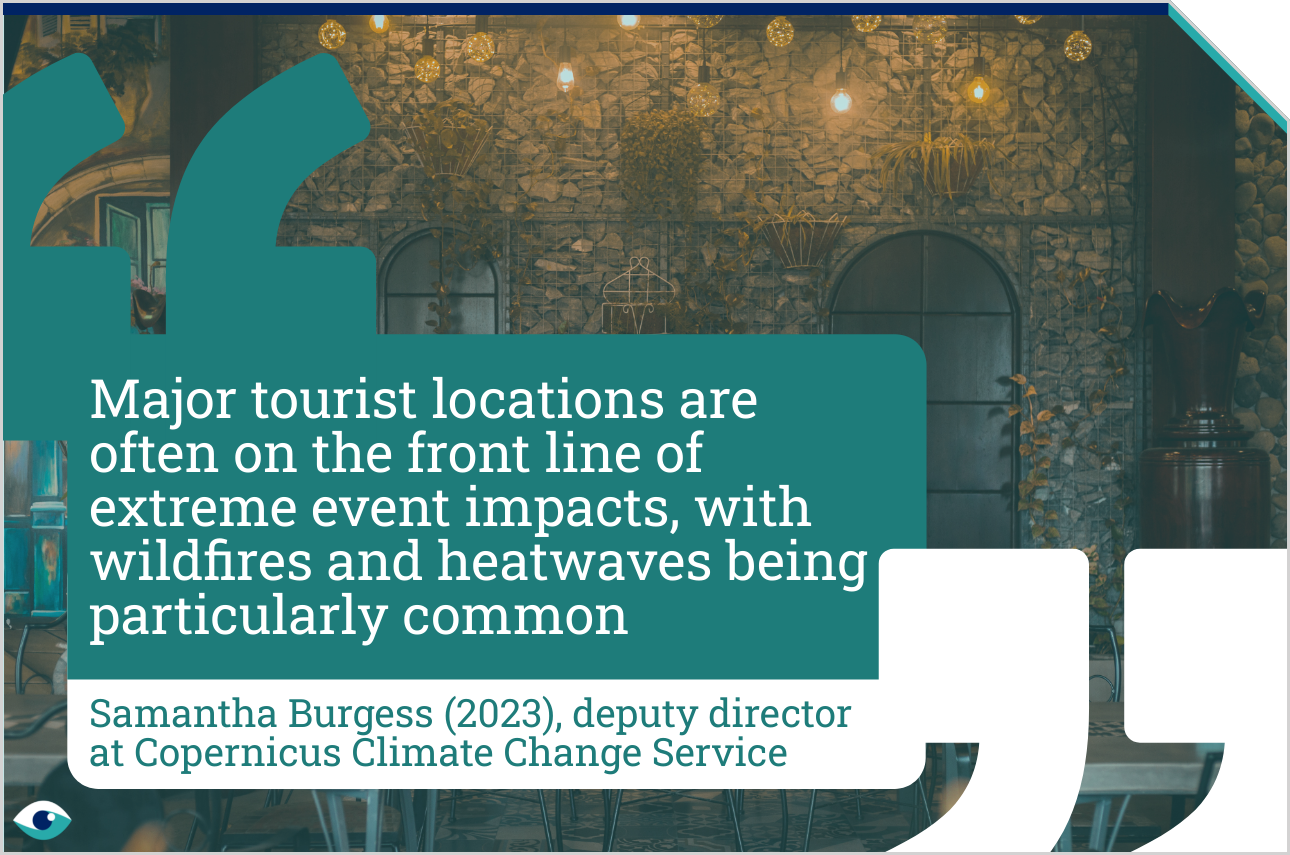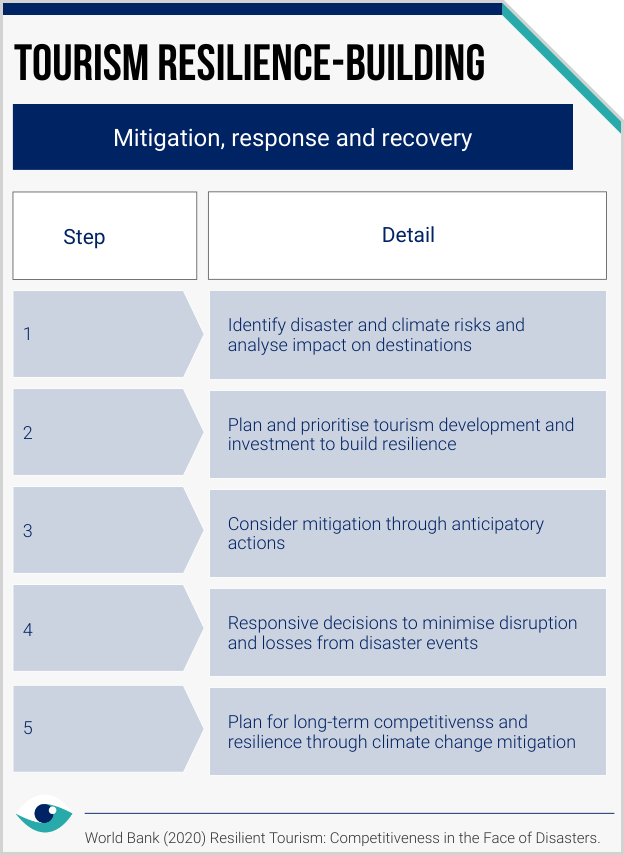Globally, 2024 is likely to be the hottest year on record, based on a combination of anthropogenic climate change and El Nino. In the tourism sector, the Mediterranean’s early summer 2024 heat waves have already fuelled fears of falling visitor numbers due to the heat. Extreme weather events include flooding, heat waves, storms and wildfires worldwide. Ultimately, extreme weather events pose substantial risks regarding operational disruptions and financial losses in tourism. However, the sector can enhance its resilience by investing in disaster preparedness and response plans, sustainable infrastructure and engineering solutions.

Mitigation of extreme weather events is crucial for tourism
Future proofing against climate related extreme weather with integrated planning and infrastructure ensures sustained resilience
Nature & climate risks
Tourism (all industries)
Publication date: 02 Jul 2024
By John Gaisford
AT A GLANCE
Climate change is driving the escalation of global extreme weather events, posing growing risks to the tourism sector.
Disaster preparedness planning, resilient facility and infrastructure design, and on-going climate adaptation are now crucial to address this.
Tourism’s focus and investment in extreme weather mitigation are growing rapidly in line with the rising risks.
Disaster preparedness
Several peer-reviewed studies released by the World Weather Attribution network point to escalating climate change-related natural disasters for 2024 and beyond. To face the tremendous challenges this poses to tourism, particularly in the global South most affected by climate change, it is imperative to identify and manage extreme weather risks and enhance resilience and sustainability. Business continuity and disaster response plans ensure operations quickly resume and sustain.
Resilient design
Investing in sustainable infrastructure and engineering solutions is vital for mitigating the impacts of extreme weather events; now creating a growing investment market in sustainable tourism infrastructure. Academic research on the subject too is increasing internationally, and hotels such as the Wyndham Group conduct risk assessments and design flood-resistant buildings. Similarly, hospitality giants such as Ryman assess building materials and implement stormwater management systems.

Stakeholder engagement
Collaboration with civil society, governments, and stakeholders is crucial, especially in the global South where communities are less resilient and adaptable to extreme weather effects, making their tourism industries especially vulnerable. This vulnerability makes multi-stakeholder approaches particularly important. By way of illustration, as part of its climate action plan, e-commerce group Expedia engages in projects that support regenerative ecosystems and resilient communities in its supply chain.

Future resilience
Future-proofing against climate related extreme weather is now a business imperative, with rising sea levels posing particular risks to coastal tourism and measures like early warning systems, evacuation plans, and continuous climate impact assessments now vital. The Global Centre on Adaptation recommends evolving strategies in line with the changing climate landscape; such as the Marriott Infrastructure Resilience and Adaptation (MIRA) framework, evaluating climate-related risks globally.
FURTHER READING
- Three ways tourism can support climate adaptation (Global Centre on Adaptation)
- Resilient tourism: competitiveness in the face of disasters (World Bank)
- Queensland tourism climate change response plan (Queensland Government)
